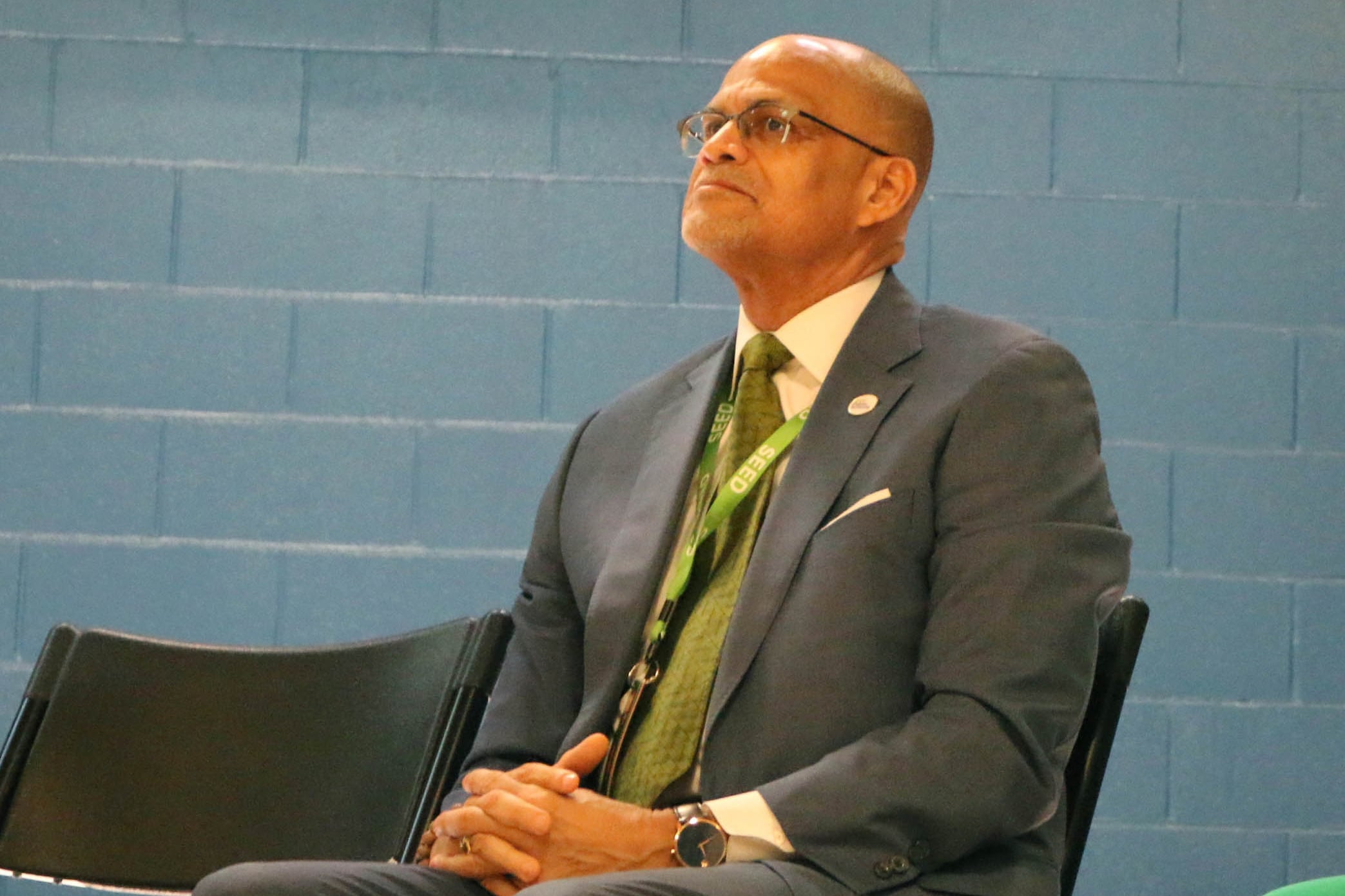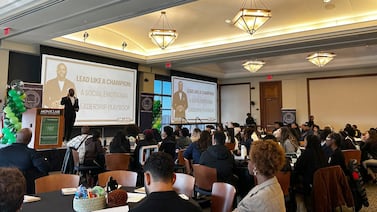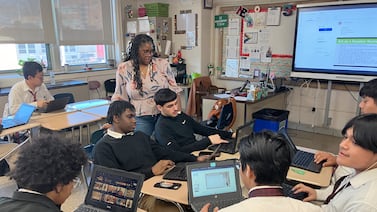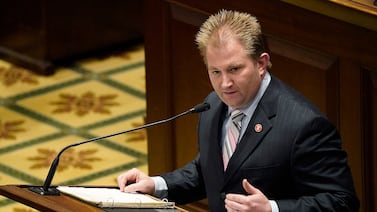Sign up for Chalkbeat New York’s free daily newsletter to keep up with NYC’s public schools.
As Mayor Eric Adams took heat last year for rolling back a planned expansion of preschool for 3-year-olds, he repeatedly claimed the project had been mismanaged.
The problem, Adams said, was the previous administration hadn’t properly accounted for supply and demand in different neighborhoods, leading to a glut of unfilled seats. So the city enlisted the consulting firm Accenture to figure out the right balance of seats at a neighborhood level across the early childhood system.
The cost would top $760,000, according to the city’s budget director, who testified in March 2023 that the city was pushing “hard” for Accenture to issue recommendations by September — in time to inform the budget process. More recently, officials said the report’s price tag was actually $350,000.
But despite more than a year of requests from journalists and city councilors, the report never materialized.
Now, the Education Department has released the Accenture report in response to a public records request filed by Chalkbeat. But the 37-page document includes no neighborhood-specific analysis about where seats are needed. And some of the report’s predictions for last school year were far off the mark, including an estimate of preschool applications that was 27% higher than what the city actually received.
“I am flabbergasted that we’ve been waiting a year and a half for this,” said Lincoln Restler, a Brooklyn City Council member who has pressed the city to share the report’s findings and reviewed the version shared with Chalkbeat. “It does not take a rocket scientist to figure out where the applications are coming from and where to connect students and families with seats.”
City officials said that the report they provided this month, which is dated March 2023, is only part one of Accenture’s work and noted an executive summary with some of its findings was made public last year. A “second phase” of Accenture’s work is ongoing, wrote Education Department spokesperson Nathaniel Styer. He did not elaborate on its scope or when it will be released.
Kara Ahmed, the deputy chancellor in charge of early childhood education who is stepping down, said last month that Accenture’s data has helped the city move or shift about 7,000 seats to meet demand.
Rita Joseph, who helms City Council’s education committee and was provided a copy of the report by Chalkbeat, offered a blunt assessment of the shifting costs: “I would try to get a refund.”
Advocates and local lawmakers expressed frustration that the city has yet to produce any of Accenture’s work related to neighborhood-level demand for seats, even as the department has collected some data on which neighborhoods are facing shortages.
The Accenture report provided to Chalkbeat includes other figures, including how many early childhood sites families apply for and the share that get their top choices. All of the company’s “recommended next steps” were redacted by the Education Department’s public records office.
Matching supply and demand for free preschool seats is crucial, as child care can represent an enormous financial strain on families. Adams has repeatedly vowed that every family of a 3-year-old who wants a free preschool seat will get one. But about 6% of applicants for this fall, or about 2,600 students, did not initially receive a match. In an interview on NY1 last month, schools Chancellor David Banks said the figure had fallen to 1,500 or 1,600 as families move off of waitlists.
At the same time, the mayor has moved forward with cuts to the program. Adams committed this year to use city funding to replace some of the expiring federal money that had been used by former Mayor Bill de Blasio to finance the program’s expansion. However, his budget for next school year included a $150 million cut.
Early childhood education advocates noted that the Accenture’s projections overestimated the number of families who would apply and ultimately enroll in the city’s preschool programs, raising questions about how useful it is for informing policy and budget decisions.
The report projected that the city would enroll 49,582 students in the city’s free preschool program for 3-year-olds, though the actual number was closer to 44,000, city officials said at a City Council hearing in May. The report also predicted the city would receive 54,535 applications for this fall, though the actual number was about 43,000.
Styer said the Education Department was working with Accenture to offer more up-to-date data to improve the accuracy of the company’s forecasts. An Accenture spokesperson referred questions to the Education Department.
Some advocates interpreted the overestimates as evidence of untapped demand, as Accenture’s analysis appeared to account for the number of young children residing within the five boroughs.
“This points to the importance of having a concerted outreach effort,” said Randi Levine, a policy director at Advocates for Children, which works primarily with low-income families. “There is no question there are children out there who could benefit who are not accessing these programs.”
City officials agreed to a $5 million outreach campaign in this year’s budget to help boost enrollment in neighborhoods with empty seats, many of which are in lower-income neighborhoods.
“We will continue to do this much-needed work to stabilize the system and ensure every student that needs a seat will have access to one,” Styer wrote.
The status of the final Accenture report remains elusive. When asked about it during a press conference last month, Banks said the city was involved in a back-and-forth with the consulting company on revisions, in part to ensure the consulting firm was correctly analyzing city data.
“I could hand you a report and say … ‘that’s the Accenture report,’ Banks said. “That’s one iteration of nine back and forths.”
Still, he suggested it would ultimately be made public. “We should be able to share some version of it without having to have the press keep asking, meeting after meeting, about this.”
Alex Zimmerman is a reporter for Chalkbeat New York, covering NYC public schools. Contact Alex at azimmerman@chalkbeat.org.







